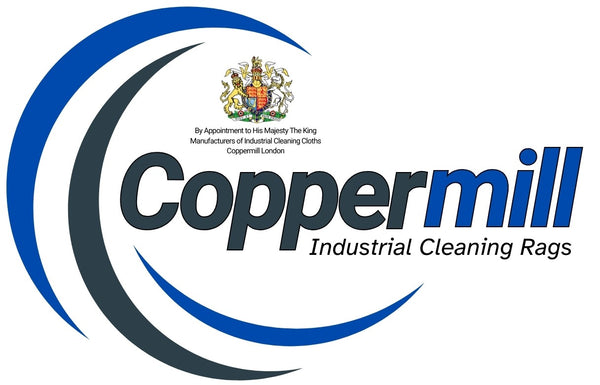
Coppermill Ltd: A Century of Textile Recycling Excellence Paving the Way for Sustainability
In the heart of East London, on the bustling streets of Bethnal Green, a remarkable story of sustainability and resilience unfolds. Coppermill Ltd, a textile recycling company with roots dating back over a century, has not only stood the test of time but has also evolved into a beacon of environmental responsibility. From humble beginnings as rag merchants navigating the streets with a horse-drawn cart named Hercules, Coppermill Ltd has transformed into a state-of-the-art warehouse and recycling facility. I aim to delve into our company's rich history, shed light on our modern-day operations, and emphasize the positive impact we have on recycling and sustainability.
A Legacy of Sustainability:
Coppermill Ltd's journey began as rag merchants, collecting and trading textiles in the early 20th century. The foresight by our founder, Jack Ratzker, laid the groundwork for a business that would become synonymous with sustainability. Hercules, the trusty horse, symbolised the hard work and dedication that went into collecting textiles for recycling—a tradition that continues to this day by Jack's son and grandson, Steven and Marc.
Over the years, Coppermill Ltd has weathered economic shifts and industry changes, remaining steadfast in its commitment to sustainable practices. The decision to focus on textile recycling was not just a business strategy; it was a conscious choice to contribute positively to the environment. This commitment has not only sustained the company but has also positioned it as a pioneer in the field of sustainable textile recycling.

Evolution into a Recycling Facility:
Coppermill Ltd's expansion into a modern warehouse and recycling facility marks a significant chapter in its journey. Today, the company processes thousands of tons of textiles annually, diverting them from landfills and giving them a new lease on life. The transformation from a horse-drawn cart to a technologically advanced facility showcases the company's adaptability and dedication to staying at the forefront of sustainable practices.
One of the key factors that set Coppermill Ltd apart is our meticulous approach to textile processing. Textiles are not treated as mere waste but as valuable resources with unique properties. The company assesses textiles based on factors such as absorbency, linting, and abrasiveness to determine the most effective and environmentally friendly recycling methods.
Absorbency, for instance, plays a crucial role in determining how textiles can be repurposed. Cotton-based fabrics with high absorbency might find new life as cleaning rags or industrial wipes. This approach not only maximizes the utility of the textiles but also minimizes waste by matching materials to their optimal uses.
Linting, another key consideration, influences the potential applications of recycled textiles. By understanding the linting properties of different materials, Coppermill Ltd can channel them into appropriate markets, ensuring that the end products meet industry standards and consumer needs.
Abrasiveness is yet another factor that guides the recycling process. Materials with abrasive qualities might be repurposed for applications that benefit from their durability, such as industrial cleaning products or insulation materials.

Positive Environmental Impact:
Coppermill Ltd's commitment to sustainability is not just about processing textiles; it's about making a tangible difference in reducing environmental impact. By diverting thousands of tons of textiles from landfills each year, the company plays a crucial role in mitigating the harmful effects of textile waste on the environment.
Landfills are notorious for contributing to pollution, greenhouse gas emissions, and soil degradation. Coppermill Ltd's recycling efforts directly combat these issues by preventing textiles from reaching the end of their life cycle in landfills. Instead, the textiles are repurposed, conserving valuable resources and reducing the demand for new raw materials.
In addition to waste diversion, Coppermill Ltd's recycling practices contribute to energy savings. The energy required to produce new textiles far exceeds that needed to process recycled materials. By choosing recycled textiles, consumers indirectly reduce the energy footprint associated with textile production.
Moreover, the company's focus on specific properties during processing ensures that the recycled textiles find purposeful applications. This targeted approach not only minimizes waste but also maximizes the efficiency and effectiveness of the recycled products.

A Greener Future:
Coppermill Ltd's century-long journey from rag merchants with a horse and cart to a leading textile recycling facility is a testament to the power of sustainability and resilience. The company's commitment to environmental responsibility, meticulous textile processing, and community engagement showcases a holistic approach to recycling.
As Coppermill Ltd continues to divert thousands of tons of textiles from landfills, the positive impact on the environment reverberates far beyond East London. The company's legacy hopefully serves as an inspiration for businesses and individuals alike, demonstrating that sustainable practices not only make good business sense but also contribute to a healthier planet for future generations.
In an era where environmental challenges are more pressing than ever, Coppermill Ltd stands as a beacon of hope—a shining example of how a small rag merchant business can evolve into a sustainability powerhouse, leaving a positive imprint on the world.
